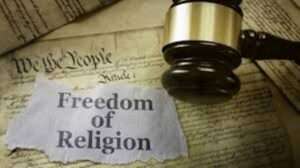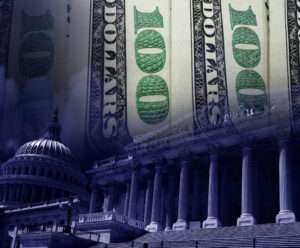The Second Amendment, Sensitive Places, and Comprehensive Government Security compendium by Dr. Angus McClellan has just been posted on SSRN. This comprehensive survey of historic "gun free zones" demonstrates that when the government required its citizens to disarm to enter such locations, it protected them with armed security. Holding a Ph.D. in American government and public law from Claremont Graduate University in California, McClellan has been a visiting professor at Hampden-Sydney College in Virginia and a postdoctoral research associate with the James Madison Program at Princeton University.
The Supreme Court in Bruen held that "when the Second Amendment's plain text covers an individual's conduct, the Constitution presumptively protects that conduct," and to justify a modern regulation "the government must demonstrate that the regulation is consistent with this Nation's historical tradition of firearm regulation." In other words, once government regulates "arms-bearing conduct," the government bears the burden to show that a longstanding historical tradition existed going back to the Founding to justify that modern-day gun control law and to demonstrate a historical exception to the Amendment's "unqualified command." McClellan's research will be invaluable for scholars and litigators researching America's historical tradition of firearm regulation as it concerns so-called "sensitive places."
The historical scope of the research extends from colonial through early antebellum times (in some cases including English antecedents). Original quotes and sources with links are set forth in extensive footnotes. Vast evidence exists that security was provided in each of the 13 original states (plus Vermont) in courthouses and legislative assemblies. Evidence was also located that 10 of the original states had security at polling places, but I suspect that further evidence will be found that it existed at all of the states.
After a short introduction, the paper includes a brief section reminding us that the Founders were aware that disarming laws made citizens worse off. In the immortal words of Cesare Beccaria, such arms-control laws "worsen the condition of the attacked while improving that of the attackers; they do not reduce murders, but increase them, because there is greater confidence in attacking the unarmed than the armed."
The first major unit in the study is entitled "Law Required Vulnerable People to be Armed." From the earliest settlements, colonial laws required those able to bear arms to carry them to church. Arms were also required to be taken to public assemblies and carried while traveling. For instance, in 1770 Georgia required that every person liable to bear arms in the militia "shall carry with him a gun, or a pair of pistols, in good order and fit for service, with at least six charges of gun-powder and ball, and shall take the said gun or pistols with him to the pew or seat, where such person shall sit, remain, or be, within or about the said church or place of worship…." The other colonies had similar laws whose goal was to provide for the safety of attendees by requiring that they be armed.
In short, yes, there were sensitive locations at the time of the Founding. And when Founding-era governments did not have the resources to secure all such locations, the Founders had a solution to that problem. They required men to bring their firearms to church. This is unlike the approach we see today in states like New Jersey, New York, California, and Hawaii where government-mandated gun free zones render their citizens defenseless. It was precisely the opposite of the approach of such states today– rather than making the sensitive location a gun free zone, they required citizens to arm to protect themselves.
The next unit, entitled "Courthouses, Legislatures, and Polling Places Were Secure," provides extensive documentation supporting the types of government buildings that Bruen identified as sensitive places. Not surprisingly, reflecting courtroom security in the states, the 1789 Act to Establish the Judicial Courts of the United States provided for the appointment of U.S. marshals to attend the federal courts. This is the same Marshals service whose duties today include "protecting the federal judiciary."
Similarly, sergeants-at-arms and doorkeepers were appointed to keep order in and regulate admission into the various legislatures. As one of many examples, in 1786 such officials attended both the house of delegates and the senate in Virginia. There were many examples in the colonial and state records of North Carolina (e.g., in a 1738 incident) of the serjeant-at-arms being ordered by the House to take people into custody and to then bring them to the chamber to answer charges.
Armed security was also provided at polling places. In Virginia in 1742, two undersheriffs "with drawn Swords across the Doors" were placed as guards to allow voters to pass in and out of a courthouse to vote. Maryland even made it part of its Constitution of 1776 to require sheriffs in every county to attend elections for both houses of the legislature.
The next and final unit is entitled "School gun restrictions." History proves that schools were not gun free zones at the Founding. Schools were not considered sensitive places because the arms restrictions applied only to students over whom the school exercised in loco parentis authority, and not to faculty. In 1745, Yale College had the following regulation that illustrates its in loco parentis relationship with the students: "If any Scholar Shall keep a Gun or Pistol, or Fire one in the College-Yard or College, or Shall Go a Gunning, Fishing, or Sailing, or Shall Go more than Two Miles from College upon any Occasion whatsoever … he Shall be fined not exceeding Two Shillings." Similar restrictions were adopted as other colleges proliferated.
I cannot do justice here to this massive study, which is 83 pages single-spaced. Suffice it to say that it is invaluable for documenting the historical fact that governments provided armed protection for spaces that today would be called "sensitive places." Without armed protection by the state, a "gun-free" zone is not consistent with "this Nation's historical tradition of firearm regulation," and the Second Amendment's default rule applies that the people have a right to bear arms in such places.
* * *
On Wednesday February 11, the Third Circuit will rehear Koons v. Attorney General New Jersey en banc. The panel decision, with a strong dissent by Judge Porter, upheld most of New Jersey's place bans as "sensitive places," albeit the state provides no armed protection at such places. See my post "Antonyuk's and Koons' Historical Feet of Clay." Tune in for a lively argument.







Show Comments (11)